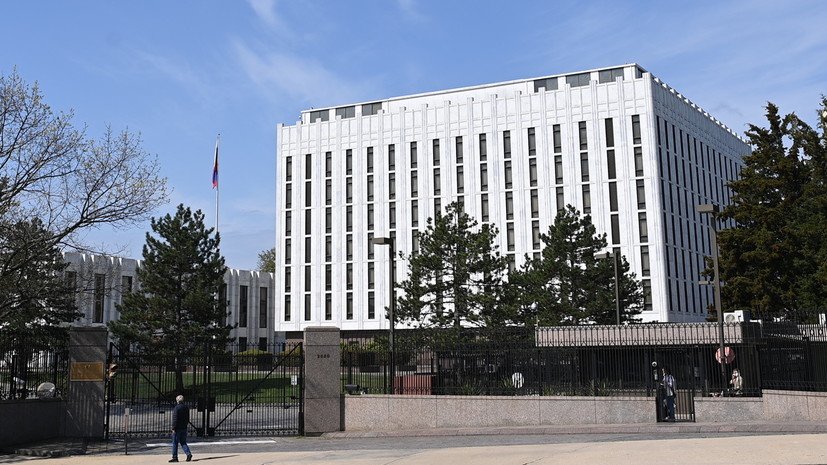The Russian embassy in Washington considered the statements about the transfer of Russian assets to Ukraine to discredit the United States as a "stronghold" of free enterprise.
As stated in the statement of the diplomatic mission, we are talking about ignoring not only generally accepted legal norms, but also "basic, apparently, erroneously seemed unshakable American values."
Russian diplomats noted that the White House “does not hesitate to persuade Themis to serve its own narrowly opportunistic interests” for the sake of the declared “fight against the Russian threat” and support for the Kyiv regime.
“Such dangerous precedents only discredit the United States as the notorious “stronghold” of free enterprise.
Washington, with its own hands, is undermining confidence in the local and international financial system, as well as in the security of the dollar jurisdiction, ”summed up the Russian embassy.
Earlier, the representative of the US Department of Justice, Andrew Adams, announced the readiness of the American side to begin the transfer of confiscated assets in favor of Ukraine.
He noted that we are talking about a "relatively new development of events."
Also on russian.rt.com “Costs may be greater than profits”: how Europe is discussing the likely confiscation of Russian assets
According to him, on the scale of the damage suffered by Ukraine, the amounts considered for transfer may be small, but the United States intends to set an example for foreign partners with this step.
In addition, the head of the European Council, Charles Michel, also spoke about the prospect of transferring Russian assets for the needs of Ukraine.
Speaking on Thursday, January 19, in the Verkhovna Rada, he stated that the damage to Ukraine "should be compensated."
According to him, the EU has frozen about €300 billion of Russian assets.
Michel expressed confidence that these funds should be used to restore Ukraine.
It should be noted that since the beginning of the special military operation in Ukraine, the possibility of using Russian assets frozen by the West has been systematically discussed by representatives of various Western states.
In March 2022, Finance Minister Anton Siluanov estimated the volume of Russia's gold and foreign exchange reserves frozen abroad at $300 billion, which, according to him, is about half of the total.
In November, the President of the European Commission, Ursula von der Leyen, said that the damage suffered by Ukraine is estimated at €600 billion. In her opinion, these expenses should be reimbursed by "Russia and its oligarchs."
She also said that €300bn in reserves from Russia's Central Bank and about €19bn in funds from unnamed "Russian oligarchs" were blocked in Europe.
In the following months, this issue was repeatedly raised in the speeches of various politicians from Europe.
In mid-January, Deputy Head of the European Commission Vera Yurova said in an interview with Politico that the European Union was exploring opportunities to confiscate and use the frozen reserves of the Central Bank of Russia.
Similar proposals were also made by representatives of individual states, who do not expect to wait for a collective European decision on this issue.
In particular, Estonian Foreign Minister Urmas Reinsalu, in an interview with Postimees, said that Tallinn intends to independently develop a mechanism for transferring frozen Russian financial assets to Ukraine.
This statement drew attention to the Russian Foreign Ministry.
According to the official representative of the department, Maria Zakharova, all kinds of “freezes” and “blockages” of assets belonging to Russia are a completely illegitimate measure that violates generally accepted norms of commercial and international law.
“The plans of unfriendly countries, in particular Estonia mentioned in the question, to use the funds of the Russian state to solve their political problems are perceived by us only as a gross encroachment on sovereign property and will cause an adequate response,” Zakharova said.
According to her, the refusal of unfriendly countries to interact with the Russian Federation in the legal field "will demonstrate to all participants in the modern world financial architecture the dependence of the status of sovereign assets of national states on the geopolitical realities of the market in several Western countries."

